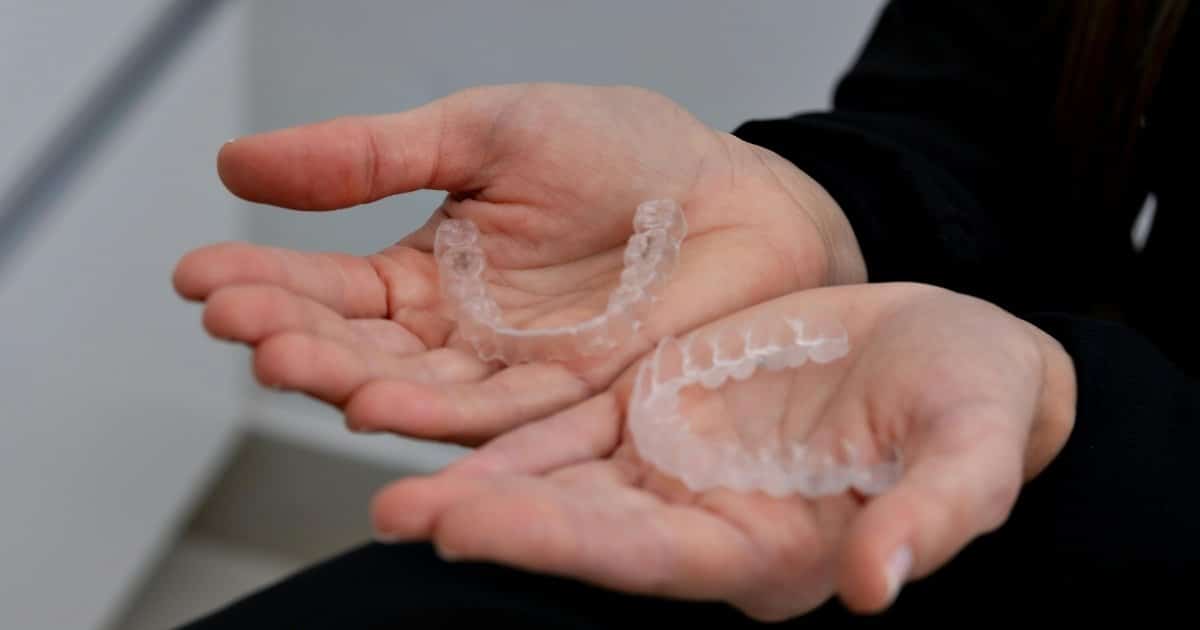Published on December 25, 2024

A crossbite can cause discomfort, uneven wear on teeth, and even jaw pain. Traditional braces were once the only option, but now there’s a more comfortable and discreet solution—Invisalign. This clear aligner system gradually shifts teeth into the right position without metal brackets or wires.
If you’re looking for a way to fix a crossbite without drawing attention to your treatment, Invisalign could be the answer. Let’s explore how it works, its benefits, and what to expect during the process.
What Is a Crossbite?
A crossbite happens when the upper teeth fit inside the lower teeth instead of resting slightly over them. This misalignment can occur in the front, back, or both areas of the mouth. Common causes include:
- Genetics
- Delayed loss of baby teeth
- Irregular jaw growth
- Thumb sucking or prolonged pacifier use
Without treatment, a crossbite can lead to problems like worn-down enamel, gum recession, and jaw pain. Invisalign offers a modern solution to fix this issue effectively.
How Invisalign Works for Crossbite?
Invisalign uses a series of custom-made, clear aligners that gradually move teeth into better alignment. The process involves:
- Consultation and Scan
- A dentist takes 3D scans to map out your treatment plan.
- A preview of the expected results helps you see the changes before treatment begins.
- Wearing the Aligners
- The aligners should be worn for at least 20-22 hours daily.
- Each set is replaced every one to two weeks to continue the movement.
- Gradual Shifts
- Invisalign gently repositions teeth over several months.
- It targets both individual tooth movement and jaw alignment for a balanced bite.
- Monitoring Progress
- Regular dental visits ensure the teeth are shifting as planned.
- Adjustments can be made if needed for better results.
Benefits of Invisalign for Crossbite
Choosing these clear aligners in Chester, VA, over traditional braces offers several advantages:
- Invisible and Comfortable
- The clear aligners are barely noticeable, making treatment discreet.
- Smooth edges prevent irritation to gums and cheeks.
- Removable for Convenience
- Aligners can be taken out for meals and brushing.
- No restrictions on food choices, unlike braces.
- Fewer Dental Visits
- Unlike braces, Invisalign doesn’t require frequent tightening.
- Progress is monitored with periodic check-ups.
- Protects Teeth and Gums
- Reduces excessive wear on teeth from misalignment.
- Helps prevent gum recession caused by an uneven bite.
Who Is a Good Candidate for Invisalign?
Invisalign works well for many types of crossbites, but some severe cases may require additional treatments. You may be a good candidate if you:
- Have mild to moderate crossbite issues
- Want a discreet way to correct your bite
- Can commit to wearing aligners daily
- Have good overall oral health
A dentist will assess your case and determine if Invisalign is the right choice for you.
What to Expect During Treatment?
The duration of Invisalign treatment varies based on the complexity of the crossbite. Here’s what the process generally looks like:
- First Few Weeks
- Some mild discomfort as teeth begin shifting
- Getting used to wearing aligners throughout the day
- Ongoing Adjustments
- Aligners will feel tight initially, then loosen as teeth move
- Regular replacements help maintain steady progress
- Final Stages
- Teeth will gradually settle into their correct position
- A retainer may be needed to keep them from shifting back
Maintaining Results After Invisalign
Once treatment is complete, keeping your smile in place requires some maintenance. Follow these tips:
- Wear a Retainer
- A retainer prevents teeth from shifting back to their old positions.
- Your dentist will recommend how often to wear it.
- Practice Good Oral Hygiene
- Brush and floss daily to keep teeth and gums healthy.
- Regular dental check-ups help maintain results.
- Avoid Teeth Grinding
- If you grind your teeth, a nightguard can help protect them.
- Discuss any concerns with your dentist for the best options.
Invisalign: A Modern Solution for Crossbite
Fixing a crossbite doesn’t have to involve metal brackets or wires. Invisalign offers a comfortable and effective way to improve your bite while keeping your treatment nearly invisible. If you’re considering this option, a consultation with a dentist can help you get started on the path to a healthier smile.
